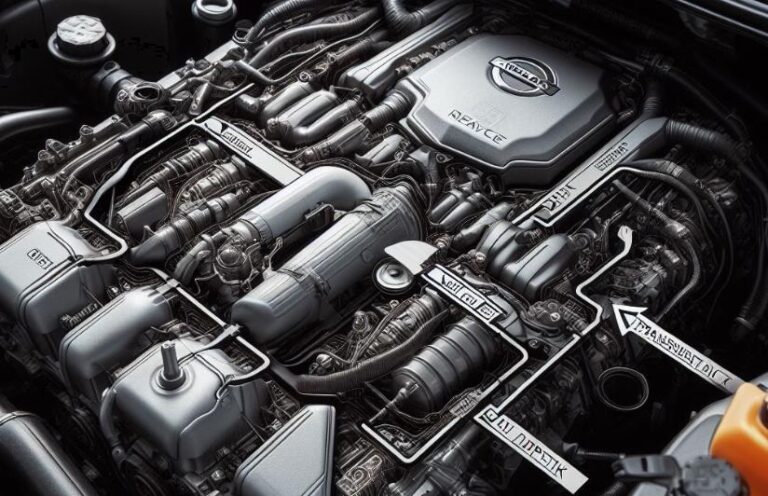Do You Need A Bill Of Sale To Register A Car In NJ? Answered
This article will explain Do You Need A Bill Of Sale To Register A Car In NJ? This question often puzzles many, especially first-time car owners. The answer is not as straightforward as one might think. This article aims to provide a comprehensive guide on this topic, ensuring you’re well-equipped with the necessary information.
Key Takeaways
- Understanding the requirement of a bill of sale for car registration in NJ.
- Navigating through the process of car registration in New Jersey.
- Identifying essential documents besides the bill of sale.
- Recognizing the importance of accurately completing all paperwork.
- Gaining insights into the NJ Motor Vehicle Commission’s guidelines.
Do You Need A Bill Of Sale To Register A Car In NJ?
To register a car in New Jersey, a bill of sale is not mandatory, but it is highly recommended. This document serves as proof of purchase and can be extremely helpful in various situations.
The New Jersey Motor Vehicle Commission (NJ MVC) primarily requires the vehicle’s title for registration. However, having a bill of sale provides additional proof of the transaction, which can be beneficial for both the buyer and the seller in case of disputes or for tax purposes.
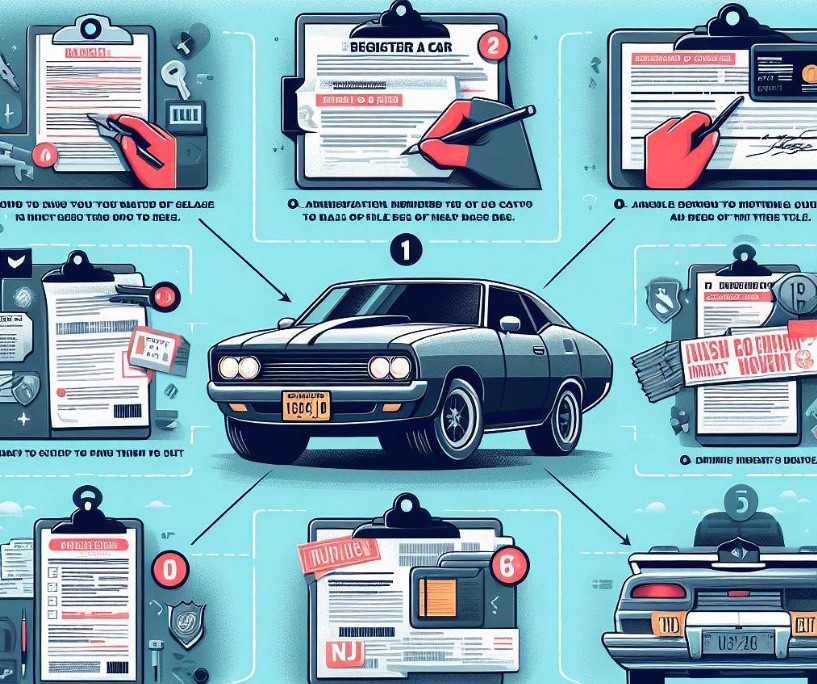
Importance of the Bill of Sale
A bill of sale, while not a compulsory document, plays a significant role in the car registration process. It provides concrete evidence of the transaction’s specifics, such as the purchase price, which is essential for calculating the sales tax. Furthermore, it can act as a safeguard in legal matters.
Situations Where a Bill of Sale is Beneficial
- Dispute resolution: Acts as a legal document in case of disagreements.
- Tax purposes: Helps in determining the accurate sales tax.
- Personal records: Serves as a receipt for your vehicle purchase.
Necessary Documentation for Car Registration
Registering a car in New Jersey requires several documents. The primary document needed is the vehicle’s title. Alongside, proof of insurance, a New Jersey driver’s license, and an odometer reading are also necessary. The vehicle identification number (VIN) must be verified, and a power of attorney may be required if the car is being registered on behalf of someone else.
The Role of Vehicle Title in Registration
The vehicle title is the most crucial document for car registration. It proves the ownership of the car and must be transferred from the seller to the buyer. The title contains vital information about the vehicle, such as the make, model, year, and VIN.
Additional Documentation Requirements
- Proof of Insurance: Mandatory for all motor vehicles in NJ.
- Odometer Reading: Essential for cars less than ten years old.
- NJ Driver’s License: Verifies your identity and residency in NJ.
Understanding NJ MVC’s Registration Process
The New Jersey Motor Vehicle Commission outlines a clear process for vehicle registration. First-time registration involves visiting an NJ MVC office with all the required documents. The process includes submitting the necessary paperwork, paying the registration fees, and obtaining license plates.
Step-by-Step Registration Guide
- Gather all documents, including the vehicle title, insurance proof, and driver’s license.
- Visit the nearest NJ MVC office.
- Complete the registration application and submit the required documents.
- Pay the applicable registration fees.
Tips for a Smooth Registration Experience
- Ensure all documents are complete and accurate.
- Check for any specific requirements for your vehicle type.
- Be prepared to pay the registration fees, as they vary based on the vehicle.
Calculating Registration Fees and Taxes in NJ
Understanding the cost involved in registering a car in New Jersey is essential. The fees are determined based on the vehicle type, weight, and age. In addition to the registration fee, the car buyer must pay the sales tax, which is calculated on the purchase price or the vehicle’s fair market value.
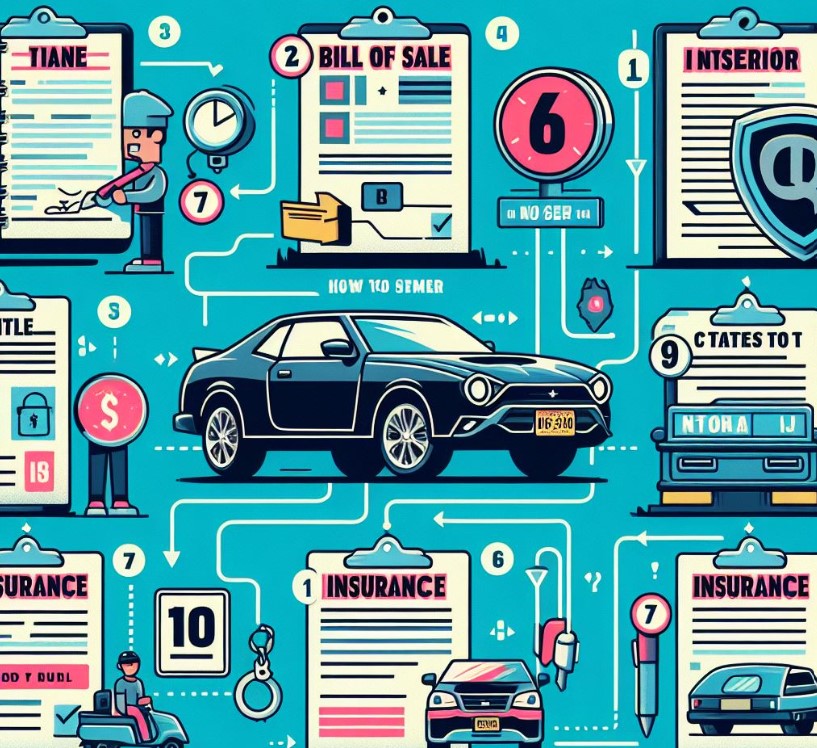
Breakdown of Registration Fees
- The fees vary depending on the type and age of the vehicle.
- Additional charges may apply for specialty plates.
Sales Tax Calculation
- Sales tax in NJ is typically 6.625% of the vehicle’s purchase price.
- If no bill of sale is available, the tax is calculated on the fair market value.
Transferring Ownership and Title in NJ
When buying a used car in New Jersey, transferring ownership is a critical step. This involves getting the title from the previous owner with the buyer’s and seller’s information filled out. The buyer then needs to take this title to the NJ MVC to complete the transfer process.
Steps for Title Transfer
- Obtain the signed title from the seller.
- Fill out the buyer’s section on the title.
- Submit the title to the NJ MVC for the transfer.
Tips for Title Transfer
- Ensure the title is free of liens.
- Verify that all information on the title is accurate and legible.
Registration Renewal in New Jersey
Vehicle registration in New Jersey is not a one-time process. Registrations typically need to be renewed every one to two years. The NJ MVC sends a renewal notice before the expiration date, which can be completed online, by mail, or in person.
Renewal Process Overview
- Check the expiration date on your vehicle registration.
- Follow the instructions on the NJ MVC renewal notice.
Online vs. In-Person Renewal
- Online renewal is convenient and quick.
- In-person renewal may be necessary for certain cases, like outstanding tickets or emissions failure.
Insurance Requirements for Car Registration in NJ
New Jersey law requires all vehicles to be insured at the time of registration. The insurance must meet the state’s minimum liability coverage requirements. Proof of insurance must be presented during the registration process.
Minimum Insurance Coverage
- Liability coverage is mandatory.
- Additional coverage like collision or comprehensive is optional.
Providing Proof of Insurance
- An insurance card or electronic proof is accepted.
- The insurance must be in the name of the vehicle owner.
What Documents Do I Need To Register A Car In NJ?
To register a car in New Jersey, you must provide several key documents to the New Jersey Motor Vehicle Commission (NJ MVC). These documents include:
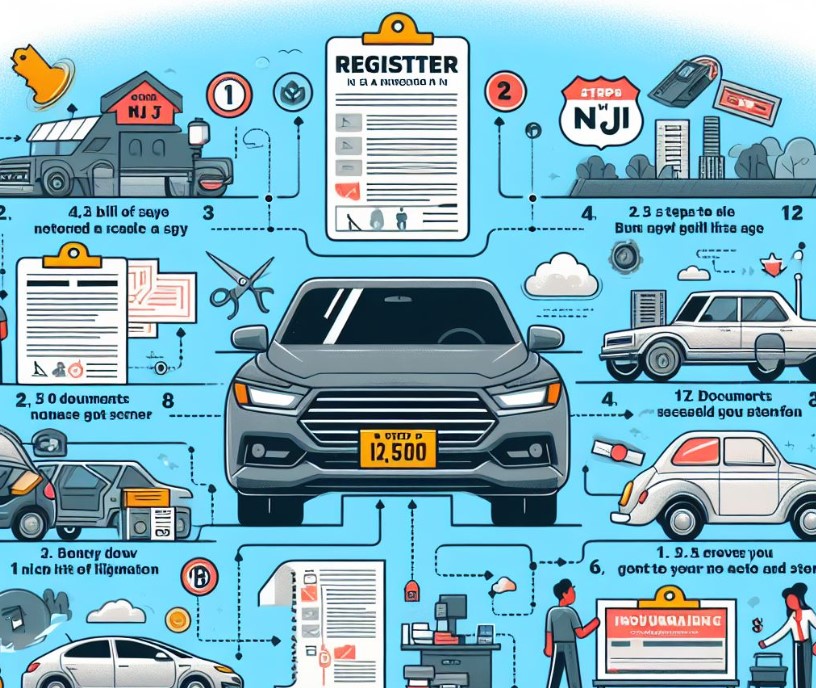
- Proof of Insurance: The vehicle must be insured in New Jersey.
- Vehicle Title: The title must be in your name or signed over to you by the previous owner.
- New Jersey Driver’s License or ID: This verifies your identity and NJ residency.
- Odometer Reading: Required for vehicles less than ten years old.
- Vehicle Identification Number (VIN): This may be verified through a physical inspection.
These documents are essential to establish ownership, ensure compliance with state laws, and verify the identity and residency of the registrant.
Does NJ Require A Bill Of Sale For A Car?
In New Jersey, a bill of sale is not a mandatory document for registering a car. However, it is highly advisable to have one. The bill of sale provides proof of the transaction and can be essential for personal records, legal disputes, or calculating sales tax accurately.
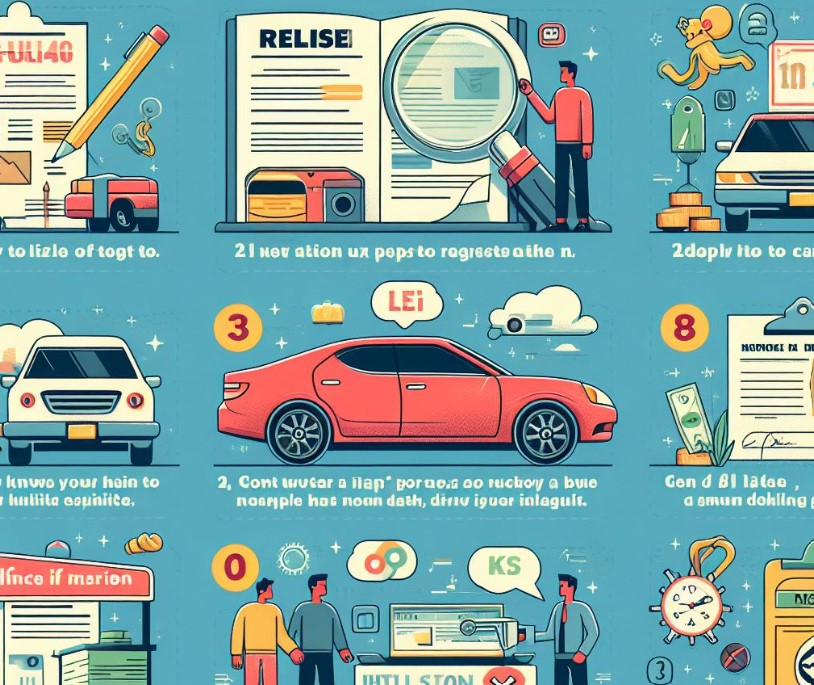
While the NJ MVC primarily requires the vehicle’s title for registration, having a bill of sale can offer additional security and proof of purchase price, which can be beneficial for both buyer and seller.
Can You Register A Car With A Bill Of Sale And No Title In NJ?
In New Jersey, registering a car without a title and only with a bill of sale is not typically permissible. The title is a crucial document required by the NJ MVC for registering a vehicle as it proves ownership. Without the title, the MVC cannot verify the legal owner of the vehicle.
If the title is lost, the seller should apply for a duplicate title before the sale. In exceptional circumstances, such as an inherited vehicle or a car purchased from a state that does not issue titles for certain types of vehicles, there might be alternative processes. It’s important to consult directly with the NJ MVC for guidance in such unique situations.
Conclusion
In conclusion, while a bill of sale is not strictly required to register a car in New Jersey, it is beneficial for legal and tax purposes. Understanding the registration process, required documents, fees, title transfer, renewal procedures, and insurance requirements is key to a hassle-free car registration experience in NJ. Ensure all steps are carefully followed and documents are accurately prepared to successfully register your vehicle in New Jersey.
Frequently Asked Questions
Are there any penalties for late registration renewal in New Jersey?
Yes, there can be penalties for late registration renewal in NJ. These might include fines and the possibility of your vehicle being impounded if caught driving with an expired registration.
Can I register a car online in New Jersey?
Yes, online registration is possible for most vehicles in NJ. However, first-time registrations generally need to be done in person at an NJ MVC office.
What are the insurance requirements for registering a car in NJ?
You must have at least the state’s minimum liability insurance coverage to register a vehicle. Proof of this insurance, which must be in the name of the vehicle owner, is required at the time of registration.
How often do I need to renew my vehicle registration in New Jersey?
Vehicle registration in New Jersey usually needs to be renewed every one or two years. The NJ MVC will send a renewal notice with instructions before the registration’s expiration date.

Welcome to the exhilarating world of Matt Rex, a professional car racer turned renowned vehicle enthusiast. Immerse yourself in his captivating blog as he shares heart-pounding adventures, expert reviews, and valuable insights on cars, trucks, jets, and more. Fuel your passion for speed and discover the beauty of vehicles through Matt’s engaging stories and meticulous expertise. Join the ever-growing community of enthusiasts who find inspiration and expert advice in Matt Rex’s blog—a digital hub where the thrill of speed meets the pursuit of knowledge.

![Can You Tour Tesla Factory Texas? [Uncovering Tesla Factory]](https://www.turbochaos.com/wp-content/uploads/2023/08/Can-You-Tour-Tesla-Factory-Texas-768x401.jpg)
![Tesla Side Cameras Not Working [Causes + Fix]](https://www.turbochaos.com/wp-content/uploads/2023/08/Tesla-Side-Cameras-Not-Working.jpg)
